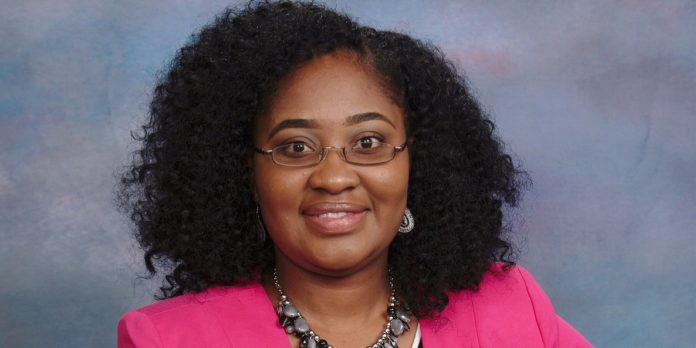 MACON – Dr. Chinekwu Obidoa, assistant professor of global health in Mercer University’s College of Liberal Arts, was selected for the Carnegie African Diaspora Fellowship Program (CADFP) this summer and traveled to Kenya, where she co-developed an undergraduate curriculum in gender and climate change for Egerton University.
MACON – Dr. Chinekwu Obidoa, assistant professor of global health in Mercer University’s College of Liberal Arts, was selected for the Carnegie African Diaspora Fellowship Program (CADFP) this summer and traveled to Kenya, where she co-developed an undergraduate curriculum in gender and climate change for Egerton University.
“Climate change remains a critical challenge for communities and countries worldwide. Given the growing threat of climate change on the livelihoods of women – and hence entire communities – in Kenya, there is a pertinent need to develop programs and approaches aimed at reducing the gendered impact of climate change in Kenya,” said Dr. Obidoa. “The proposed diploma program will create an academic and intellectual space where the issues of gender and climate change will be brought to the forefront and efforts to respond to this crisis engaged.”
Additionally, Dr. Obidoa created two-week and six-month certificate programs in gender and climate change for Egerton University aimed at students who are unable to complete the three-year undergraduate diploma program.
As an important structural response to the impact of climate change, Dr. Obidoa and her collaborators intend for these academic programs to increase awareness about the gendered effects of climate change in the local community and in the entire region and foster research and scholarship on the impact of gender on climate change in Kenya.
“I am very excited about this project that Dr. Obidoa is undertaking. Her experience collaborating with scholars at Egerton University and beyond in an effort to increase awareness of the impact of gender inequities and climate change is important work. It fits perfectly with Mercer’s mission of using research to make an impact on real-world problems,” said Dr. Anita Olson Gustafson, dean of Mercer’s College of Liberal Arts.
Dr. Obidoa also delivered a presentation on gender and climate change at the Indigenous Peoples of African Coordinating Committee (IPACC) planning meeting held June 19-21 in Naivasha, Kenya, and co-prepared the IPACC gender and climate change strategy.
“My experience as a CADFP fellow not only enriched me in new and diverse ways, it provided opportunity for me be part of an innovative initiative focused on responding to a major global health issue – climate change in East Africa,” said Dr. Obidoa. “I look forward to building on the partnership created with Egerton University in ways that will not only benefit Egerton but also Mercer students.”
Dr. Obidoa joined Mercer’s faculty in the fall of 2013. Her research interests focus on examining the impact of globalization on health in Africa and the spatial and social epidemiologies of HIV/AIDS risk.
“Dr. Obidoa’s scholarly pursuits and achievements continue to impress,” said Dr. Eimad Houry, professor and chair of international and global studies at Mercer. “Her latest endeavor is a timely and significant engagement that recognizes the growing and gendered impact that climate change has on the people of the developing world in general, and Africa especially. As a professor responsible for teaching a course on the environmental determinants of health this semester, I am sure Dr. Obidoa will work to share the lessons she has learned from her work with the students enrolled in this course.”
Dr. Obidoa’s project was part of a broader initiative that paired 55 CADFP scholars with 43 higher education institutions and collaborators in Ghana, Kenya, Nigeria, South Africa, Tanzania, and Uganda to work together on curriculum co-development, research, graduate teaching, training, and mentoring activities this year.
Fellows work with their hosts on a wide range of projects that include controlling malaria, strengthening peace and conflict studies, developing a new master’s degree in emergency medicine, training and mentoring graduate students in criminal justice, archiving African indigenous knowledge, creating low cost water treatment technologies, building capacity in microbiology and pathogen genomics, and developing a forensic accounting curriculum.
The Carnegie African Diaspora Fellowship Program, now in its fifth year, is designed to increase Africa’s brain circulation, build capacity at the host institutions, and develop long-term, mutually-beneficial collaborations between universities in Africa and the United States and Canada. It is funded by Carnegie Corporation of New York and managed by the Institute of International Education (IIE) in collaboration with United States International University-Africa (USIU-Africa) in Nairobi, Kenya, which coordinates the activities of the Advisory Council.
A total of 335 African Diaspora Fellowships have been awarded for scholars to travel to Africa since the program’s inception in 2013.
Fellowships match host universities with African-born scholars, individually or in small groups, and cover expenses for project visits of between 21 and 90 days, including transportation, a daily stipend, and the cost of obtaining visas and health insurance.
For more information, visit www.iie.org/en/Programs/Carnegie-African-Diaspora-Fellowship-Program.










